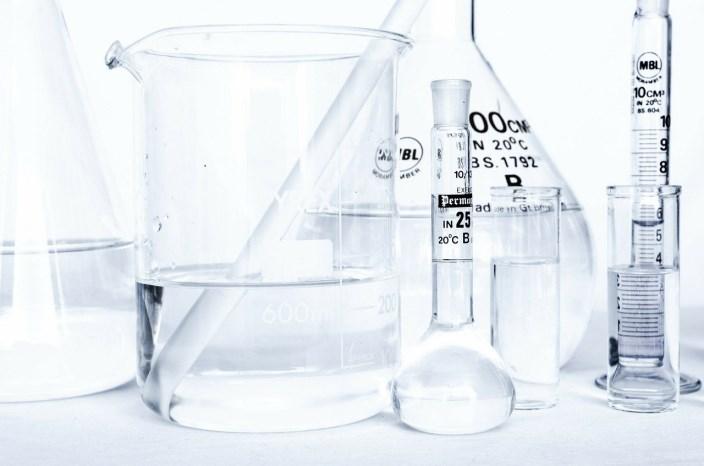
6 minute read
A game of tariffs
from Whitonomics 2020
Simmering resentments reveal themselves in the trade war
Pedro Rosselli
A trade war consists of two countries increasing their protectionist measures against the other country which would lead to retaliatory protectionist measures such as extra taxes on goods produced in that country. This trade war consists of Japan and South-Korea - two industrial powerhouses with Japan having the 3rd biggest economy in the world and South Korea the 11th largest in the world. These could have consequences for the global economy which is already suffering from the trade war between China and the USA. All of this havoc could therefore potentially lead to the whole world suffering and cause a recession in the modern world.
These trade wars signal what is going to happen in the future as more and more countries increase protectionism to protect domestically made products competing which foreign goods and services. There is history between these two countries as in the past from 1910 to 1945 Japan ruled over South Korea. These war wounds were reopened in early October where the Korean Supreme Court made the decision in which it allowed people to sue Japanese companies for wartime damages with Japan already paying $500 million in aid to help boost their relationship via the 1965 agreement. Many Japanese countries refused to comply with the order and this increased tensions even further. After the decision was made Japan retaliated with an increase in control of the exports of three chemicals which include hydrogen fluoride, fluorinated polyamides and photoresists. These chemicals are essential to create semiconductors which are a key
material and are in most electric devices. With the tightened control of the exports of those chemicals it meant Japanese companies would need a license to export any of the three chemicals to South Korea, this process could take as long as 90 days which could cause a serious delay in the production of semiconductors in
WHITONOMICS ISSUE 8
Korea which would have a serious
effect on the economy as semiconductors are the main exports of South Korea. Japan said that the restrictions of its exports were due to them believing they were leaking sensitive information to NorthKorea without providing details. As expected South Korea denied these accusations and after this Japan imposed another policy adding to the trade war which was removing Korea from the “white
list” which contains Japan’s trusted trading partners whilst Korea have taken Japan off their preferred trading partners and downgraded them to a new category of downgraded countries. This would delay all types of exports to South Korea such as household electrics and auto parts and would slow down the production of multiple products causing the economic growth to slow down in both countries. This has hit South Korea where it hurts most as both Samsung and SK Hynix are situated in South Korea in which they combined produce two thirds of the world’s memory chip production as three companies in Japan which are called Showa Denko, Shin-Etsu Chemical and JSR corporation in which they produce 90% of the world’s Photoresist and Fluorinated polyimide which are both used for OLED and LCD displays which are both used to produce mobile phones. However this would also affect Japan as they too were dependent on exporting to Korea these chemicals. A decrease in quantity of these chemicals supplied would cause a decrease in the total of these chemicals sold and therefore decrease revenue
However, in the long run for South Korea as they have both dropped each other from their preferred trading list of partners would look to resource these chemicals from somewhere else more reliable and trustworthy then Japan. Therefore, Japan will lose some of its business to South Korea as they look to find new sources and trading partners who have access to those chemfor new potential buyers to sell these products. The results of the decrease in exports can be clearly seen by the value of hydrogen fluoride being transported as exports from Japan to South Korea have decreased by 99.4% to roughly about $34175. These results have shown the hostility towards each other as sales dwindle down and the South Korean government have since pledged to invest in developing raw materials of the three chemicals. However both of these countries will not back down as nearly 7/10 people in Japan supported its decision to place the trade restrictions on tech and with more than 5/10 people in Korea supporting its decisions to retaliate. So, with these figures neither country will back down and reduce the protectionism of their own country, therefore the trade war will continue for a long time. Both countries will be highly affected by the trade war that has quickly affected it however both countries will be affected differently in the short run and the long run. This is because in the short run South Korea’s economy would be worse off than Japan’s however as time goes on experts have predicted that Japan will be worse off in the long run. This is because South KoThe trade war is impacting the production of smartphones. value and total sales per year. This is important as Samsung is expected to pay 16.8 trillion won or roughly $15 billion dollars’ worth in tax with about 70% going towards South Korea. This would equate to 11.76 billion dollars in tax towards the South Korean government. This would therefore harm South Korea’s collection in tax and affect its plans especially as South Korea have drafted its most aggressive budget spending plan since 2008. Also, in the short
run Japan will be affected heavily as boycotts of Japanese beer and cars

have taken place and as a result sale have decreased heavily in South Korea. This is seen by a severe drop of Japanese beer to South Korea as ex-
ports have dropped by 99.9% since last September just $5400 worth of
A decrease in chemical sales would impact tax revenues in Japan.
icals therefore they will have to look beer was shipped this September
compared to $7.2 million last Seprea’s exports consist of 25% of ex- This trade war will strengthen ports are chip making sector ac- China’s position in the world’s econcounts. In the short run there will be omy as two of the United States some shortages of the three prod- main allies in Japan have fallen out ucts causing the delay in production for each other. China will also benefit of the electronic chips and other as they began to increase production products. These would short term of its microchip industry as it raise the prices up for these products planned to rely less on foreign goods as there would be a decrease in sup- after the trade war. So, China could ply of these chemicals causing a shift be able to fill the gap and supply new to the left in aggregate supply. This countries who look to produce comwould cause a decrease in the quan- puter and mobile phone chips as tity of smartphones demanded lead- there is disruption to the supply ing to big companies decreasing in chain because of Japan’s new poli-

tember. cies.
Overall, I think that both countries are losing out in both the short run and long run leading to the question of why does the trade war exist. The most likely reason is because of the historical tensions these countries have had in the past as both countries do not want to back down and be publicly humiliated/lose pride. This has led to a very bitter and harmful trade war.










